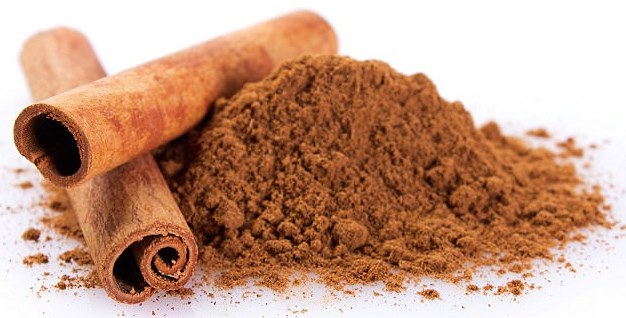ALTERNATIVES
TO PESTICIDES -3- PESTICIDES
Can we
substitute pesticides with other pesticides?
Not only is
it possible, but it's even currently the most frequently used by organic
farmers and the easiest for them.
Personal
picture
Let's see
that.
When
it's talked about pesticides, society usually only thinks about synthetic
pesticides. It's rarely talked about pesticides allowed in organic farming, yet
quite numerous, and whose adverse effects are not necessarily negligible.
Toxicity for soils, for fish, for bees, endocrine disruptor effects, the
consequences of their use often has little to envy to synthetic pesticides. The
only fundamental thing that differentiates them is their natural and not
synthetic origin.
Many people
also think that organic farming is a way to reduce the "power" of the
big multinationals of agrochemistry. This is a big mistake, since it's already
several years since, feeling the wind turn, they have massively invested in the
research for biological solutions for the plant protection.
For example,
one of the most important organic insecticides in the world, and currently one
of the most widely used pesticides, independently of the crop method, is
spinosad (whose toxicity to bees is well known and widely documented), was
discovered in 1985, then produced on a large scale by the American agrochemical
giant Dow Chemical (now also owner of Dupont). The production of this
pesticide, produced by bacteria, is done in ultramodern factories, far from the
romantic image of the manual manufacture of pesticides based on plant
decoctions.
In
the same way, the extraction of natural pyrethrins used in organic farming is
based on an intensive industrial production in monoculture using synthetic
pesticides on a large scale, also far from the philosophy of organic farming (http://culturagriculture.blogspot.com/2017/04/104-natural-vs-synthetic-4-about.html).
Of course,
there is also an important work of homemade pesticides, usually plant extracts
or fermentations. Their effectiveness is highly variable, as it depends on the
manufacturing conditions (temperature, light, quality of the water used,
concentration in active ingredients of plants, know-how of the preparator,
etc.).
Some
manufacturers, generally local or national companies, rarely multinationals,
offer formulated products on the basis of these same plants, which have the
advantage of providing the farmer with a certain guarantee of homogeneity and a
high degree of ease of use.
But I think
the most interesting thing in this field is the research, by many companies,
big or small, universities and research institutes, of alternative solutions
from Nature to substitute synthetic pesticides.
Nature
(especially plants, fungi and bacteria) continues to surprise us with its great
creativity in the solutions it has developed to defend itself against external
aggressions. (http://culturagriculture.blogspot.com/2015/09/52-lesprit-des-plantes-2-autodefense.html).
Scientific
research continues to make discoveries that show that our diet is heavily
loaded with natural toxins of great diversity, and that many of these toxins
can have interesting agricultural uses.
Thus,
several studies (the most famous is American, dated 1999, by Professor Bruce
Ames and his team, from the University of Berkeley https://toxnet.nlm.nih.gov/cpdb/pdfs/Paracelsus.pdf)
tried to analyze and quantify the natural toxins present in our diet.
The results
are very surprising, and are mostly contrary to popular belief: we consume
about 10,000 times more natural toxins daily than synthetic pesticide residues.
By the way,
this study is 20 years old. Since then, crop protection techniques have
evolved, molecules have been modernized and their use rates have been
significantly reduced.
Based on my
own residue analysis, which I started in 1997, I estimate that the amount of
residue on food has been reduced by 10 to 20 times since that time. On the
other hand, our foods have not changed much and most probably maintain similar
levels of natural toxins.
This would
lead us, assuming my estimate is correct, to a proportion of 100,000 to 200,000
times less synthetic pesticide residues than natural toxins absorbed daily in
our diet.
I close this
parenthesis to tell you that, for what interests me today, these studies are
especially interesting to show us that the plant world contains a large number
of natural molecules extraction possibilities that could be used in
agriculture, with effects fungicide, insecticide, repellent, nematicide and
even, in some cases herbicide.
The
same Bruce Ames study teaches us, for example, that a cup of coffee contains
more than 1,000 chemical compounds and natural toxins.
Very
recently (the publication dates from February 1st, 2019), it was discovered
that there may be a biological alternative to the highly hyped and highly hated
and highly controversial glyphosate https://www.nature.com/articles/s41467-
019-08476-8.
This
molecule, a sugar previously unknown, is produced by a bacterium, Synechococcus
elongatus, which makes it a biological alternative, with a mode of action very
similar to glyphosate, which would be a guarantee of versatility and
efficiency.
It would be
especially a real solution to the difficulties of weed control, one of the big
problems badly solved of the organic agriculture.
It remains
to be seen whether this molecule will correct the "defects" of
glyphosate, and in how many years the farmer will be able to freely dispose of
this new natural molecule.
Many natural
pesticides exist, based on plant extracts for the most part: nicotine, natural
pyrethrins, neem oil, nettle fermentation, citrus seed extract, garlic extract,
lavender extract, tomato leaf extract, chili extract, rotenone, cinnamon
extract, vegetable oils, etc.
Some
are readily available to farmers, others are handcrafted, and others are
subject to bans or restrictions on environmental or health problems.
In short,
organic pesticides have a bright future ahead of them. It remains pesticides,
with disadvantages similar to synthetic pesticides, but their natural origin is
that their use is allowed to farmers, and does not pose a state of soul to
fundamentalists of organic. The general ignorance of their side effects on
health and on the environment either.
They have a
big advantage for farmers: there is no fundamental change in the techniques and
methods of production. It can maintain the same work habits by substituting
synthetic pesticides with their biological equivalents.
The only
downside right now is the lack of biological solutions in many cases. It is
likely that thanks to the huge investments in scientific research around the
world, new developments will continue to emerge at a rapid pace.
We will see
later that other techniques can represent a profound challenge to farmers'
habits.
The future
must logically consider all available techniques.
Even if
great progress is being made, I still think that it is very regrettable and
harmful to want to deprive agriculture, at least until there are real
alternatives, effective solutions, currently well-known and not very
problematic if they are well used, only for an ideology that is not based on
any tangible or demonstrated reality.
And
we have no illusions, recent or current work that studies large declines in
insect or bird populations will not improve with the ban on synthetic
pesticides. Natural pesticides will have very similar side effects when used on
a very large scale. One can only hope, but without proof for the moment, that
their biodegradability will be faster, and still, not those of mining origin,
unavoidable in organic, like sulfur or copper.






What an informative article. My dogs and cat are my babies,
RépondreSupprimerand I try to keep them as clean as possible, but somehow, they are still fleabags. Pet care is no joke!
I have always been wary of using chemicals on them, and it seems like I have the best solution now.
I am definitely going to try out the
natural spray
on them in order to protect my babies from flea and ticks. Thanks!
I really love it and amazing information in this blog. it's really good and great information well done.
RépondreSupprimerwater soluble fertilizers manufactures in maharashtra
Thank you for sharing this blog with us.
RépondreSupprimerAdhatoda Vasica Extract Manufacturers | Garlic Extract Manufacturers
Many alternatives to pesticides include crop rotation, biological pest control, neem oil, pheromone traps, and companion planting for sustainability.
RépondreSupprimer1kw wind turbine price in india
1kw wind turbine price in india
pawan chakki price in india
solar panel teas passage
Top 10 Wind Energy Companies in India
NACL’s approach to agrochemical formulations in India is impressive—safe, reliable, and farmer-focused!
RépondreSupprimerBest Agrochemical formulations.